Scientists and engineers from all over the world were gathered in Olympia in Greece to take part in the first ever engineering Olympiad.
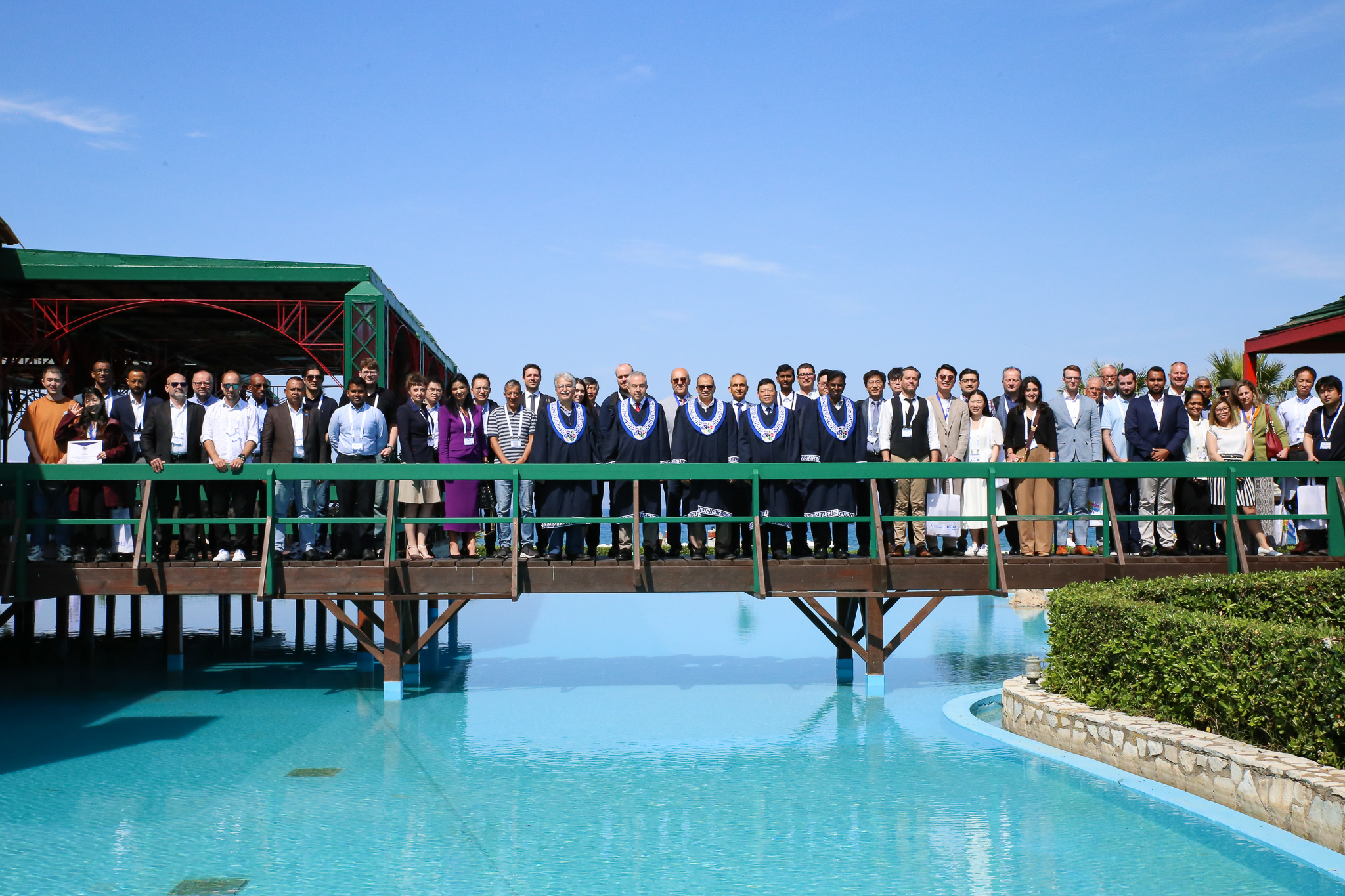
In a holiday resort on the southern peninsula of Greece, researchers were gathered to share their knowledge in engineering science. Olympiad in Engineering Science is both a conference and a competition, and over the course of five days, the best research in categories such as mechanical and structural engineering, machine learning, renewable energy, materials science, and biomedical technology were selected.
Influential scientific minds and distinguished researchers met in Olympia, the place of the origin of the Olympic Games, to share their knowledge and to assess the novelty of the research works presented in the conference.
Professor Dimitrios Pavlou from University of Stavanger initiated the Olympiad. For the past year, this has been his "brainchild". After the five day-conference, he felt grateful and humble.
"Now we look forward to repeat the success. The next Olympiad will take place in Stavanger June 2025," Pavlou says.
And the winners are …
In total, almost 400 scientists contributed to the 90 scientific papers selected for the conference. Five papers were chosen as winners. The Olympiad committee, led by Professor Hojjat Adeli from Ohio State University, selected these papers for the Olympiad medals:
- A UAV and CNN-based bridge rivet inspection and diagnosis method
Tengjiao Jiang, Gunnstein Thomas Frøseth, Anders Rønnquist (NTNU, Norway) - Developing an Adaptive Design Concept for Structural Composites
Viktor Gribniak and Mantas Garnevičius (Vilnius Gediminas Technical University, Lithuania) - Antenna Catheter Modeling for Acute Ischemic stroke therapy
Maria Revythi, Vassilios Sideris, Angelo Ferraro and Evangelos Hristoforou (National Technical University of Athens, Greece) - Ensembled multi-classification generative adversarial network for condition monitoring in streaming data with emerging new classes
Yu Wang, Qingbo Wang and Alexey Vinogradov (NTNU, Norway and Humamoto University, Japan) - Supervisory control of multiple product flow for a Flexible Manufacturing System
Fotis N. Koumboulis, Dimitrios G. Fragkoulis, Maria P. Tzamtzi and Dimitrios Papadopoulos (University of Athens, Greece)
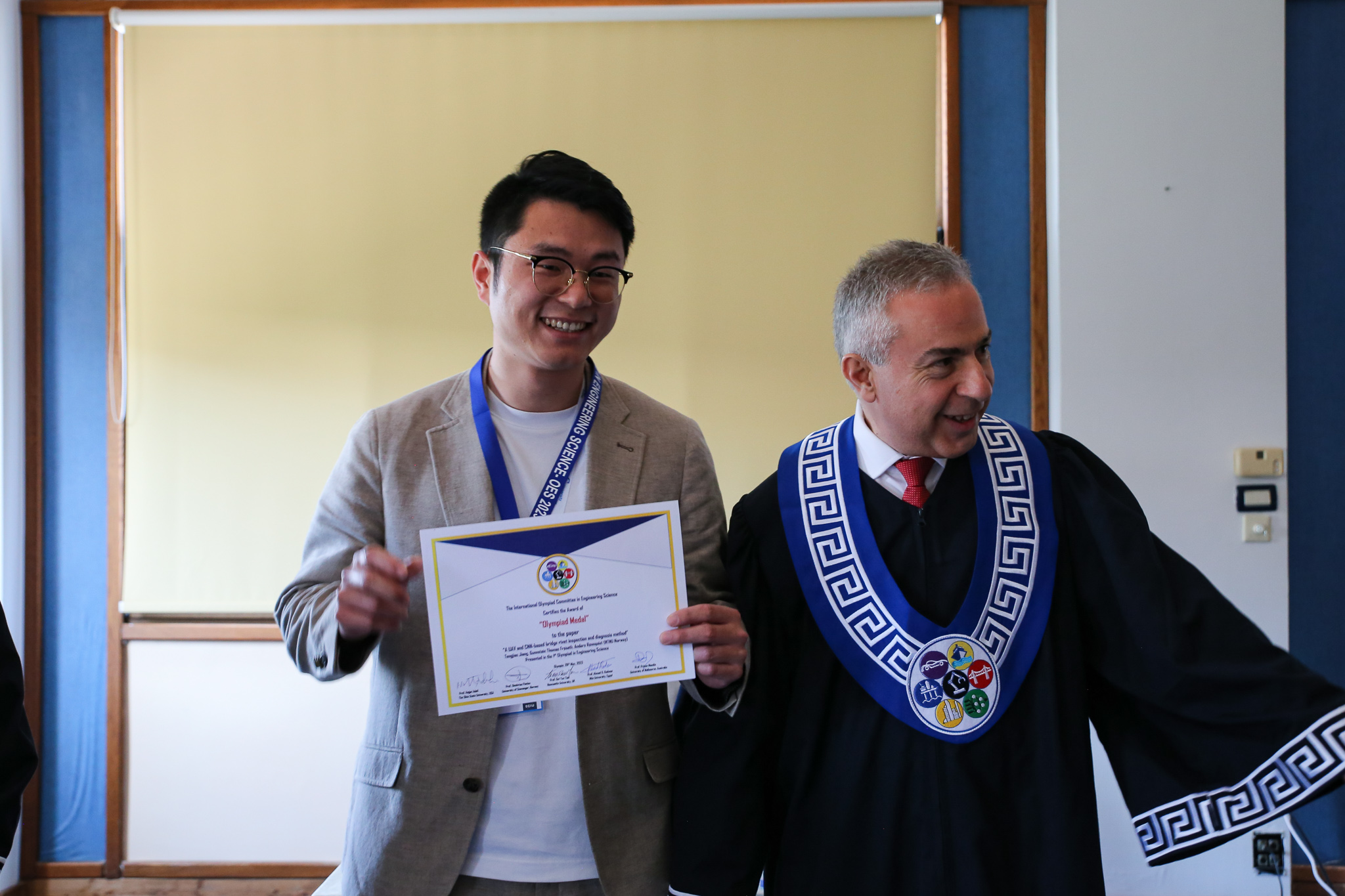
Tengjiao Jiang (NTNU) and Professor Dimitrios Pavlou.
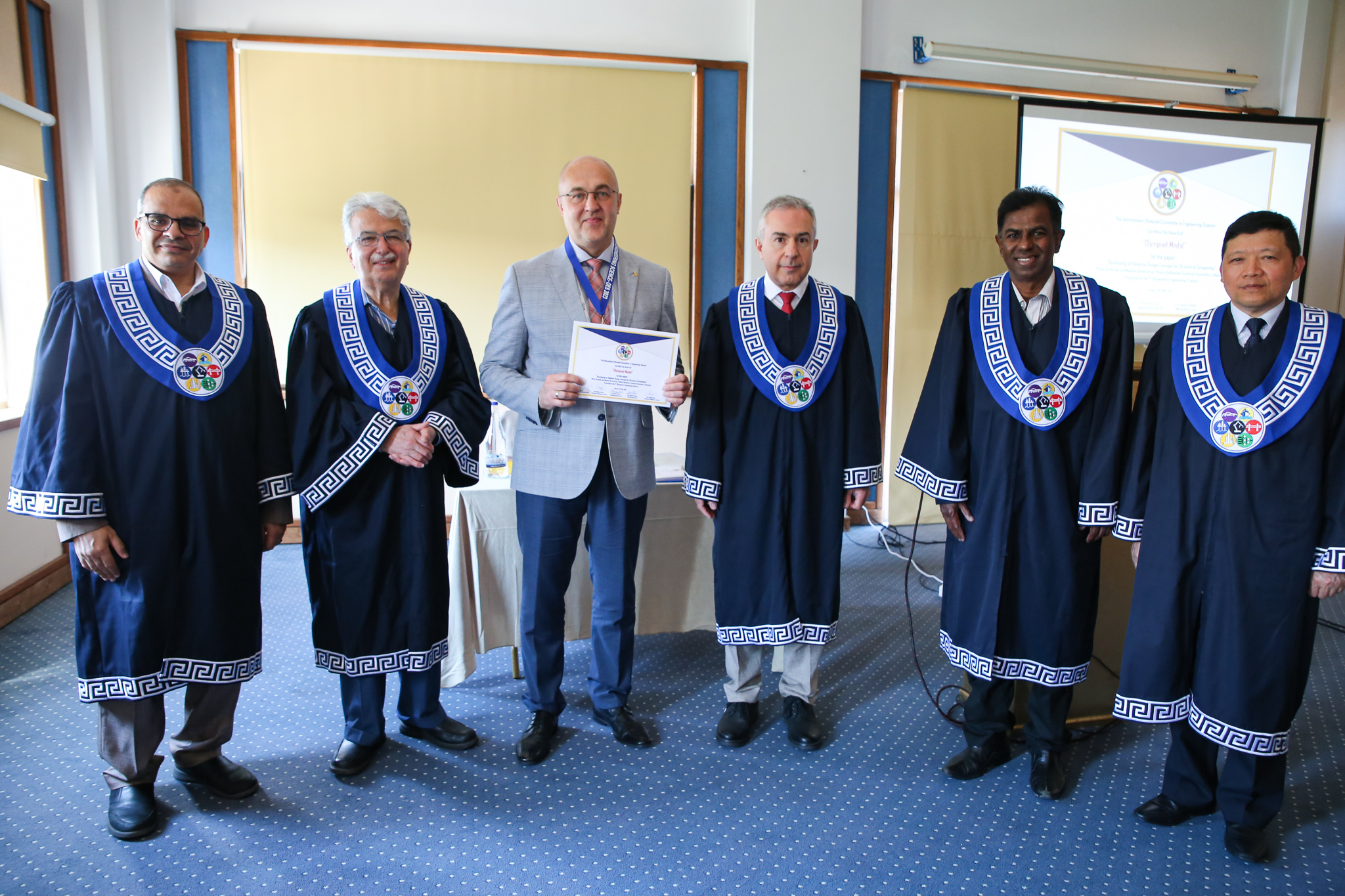
Viktor Gribniak from Vilnius Gediminas Technical University.
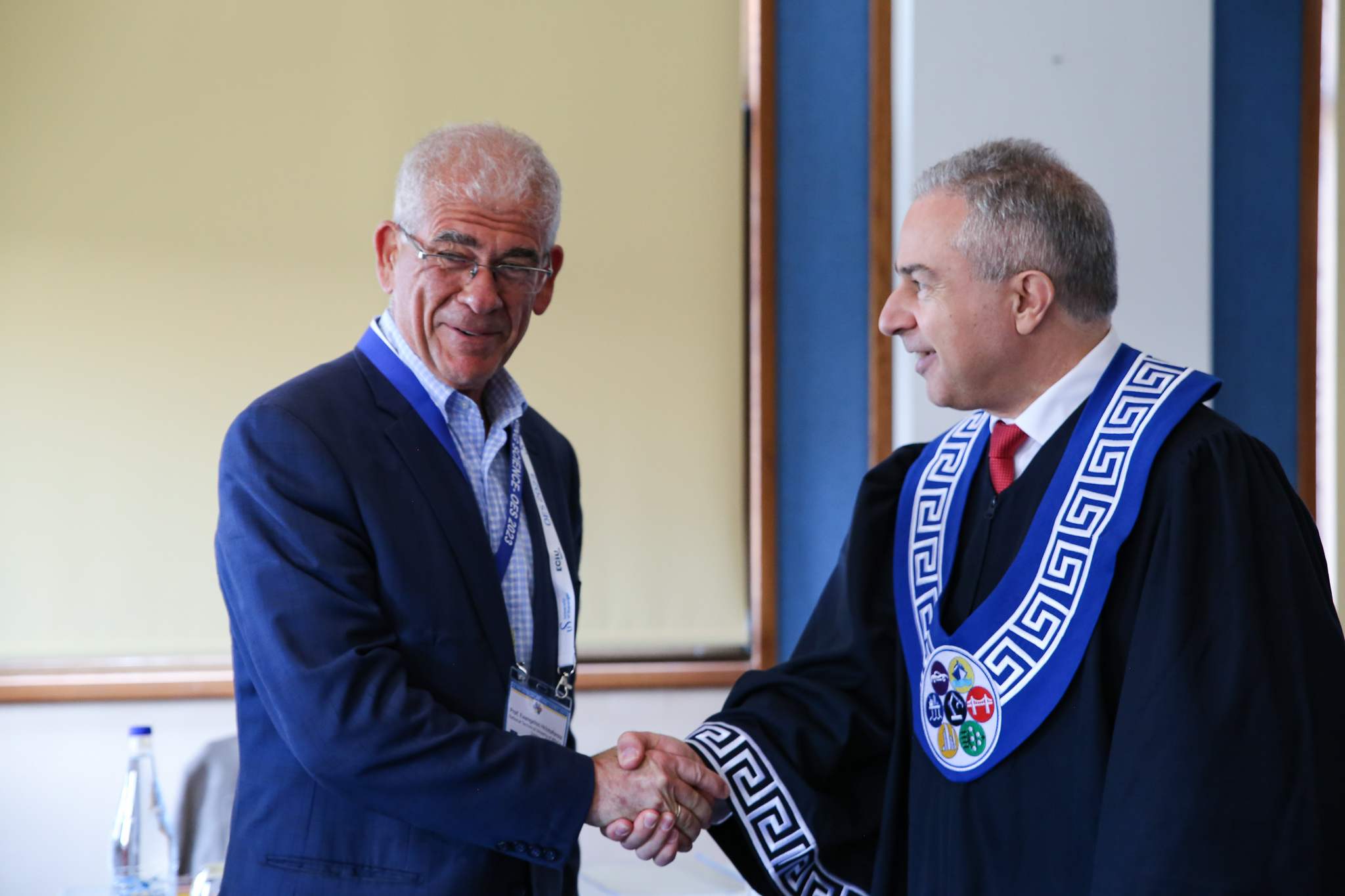
Evangelos Hristoforou (National Technical University of Athens, Greece).
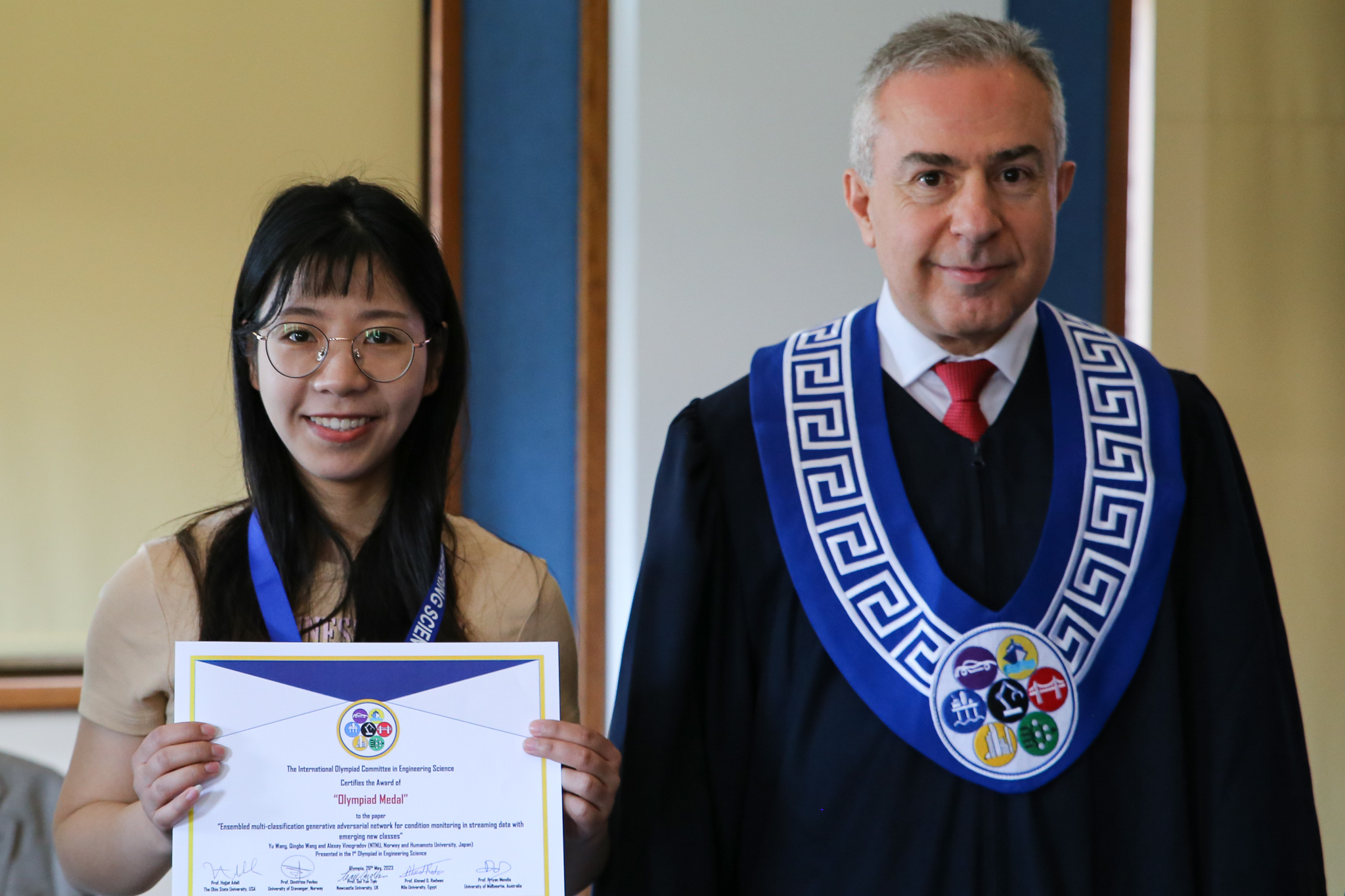
Yu Wang (NTNU).
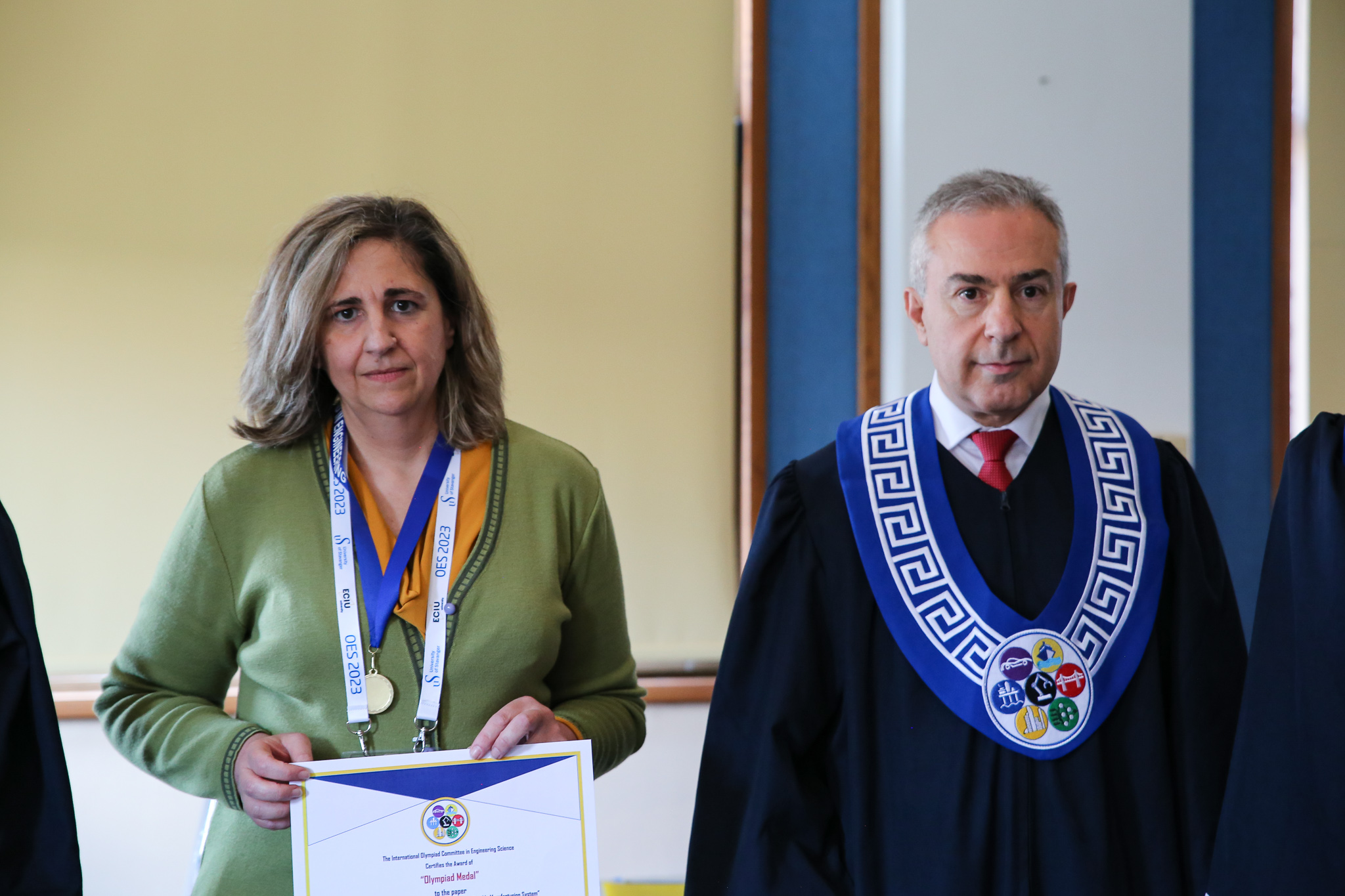
Maria P. Tzamtzi (University of Athens, Greece).
Outstanding contribution
In addition to the Olympiad medals, one medal of honour was awarded – the Archimedes Medal. The medal was awarded Professor Hojjat Adeli.
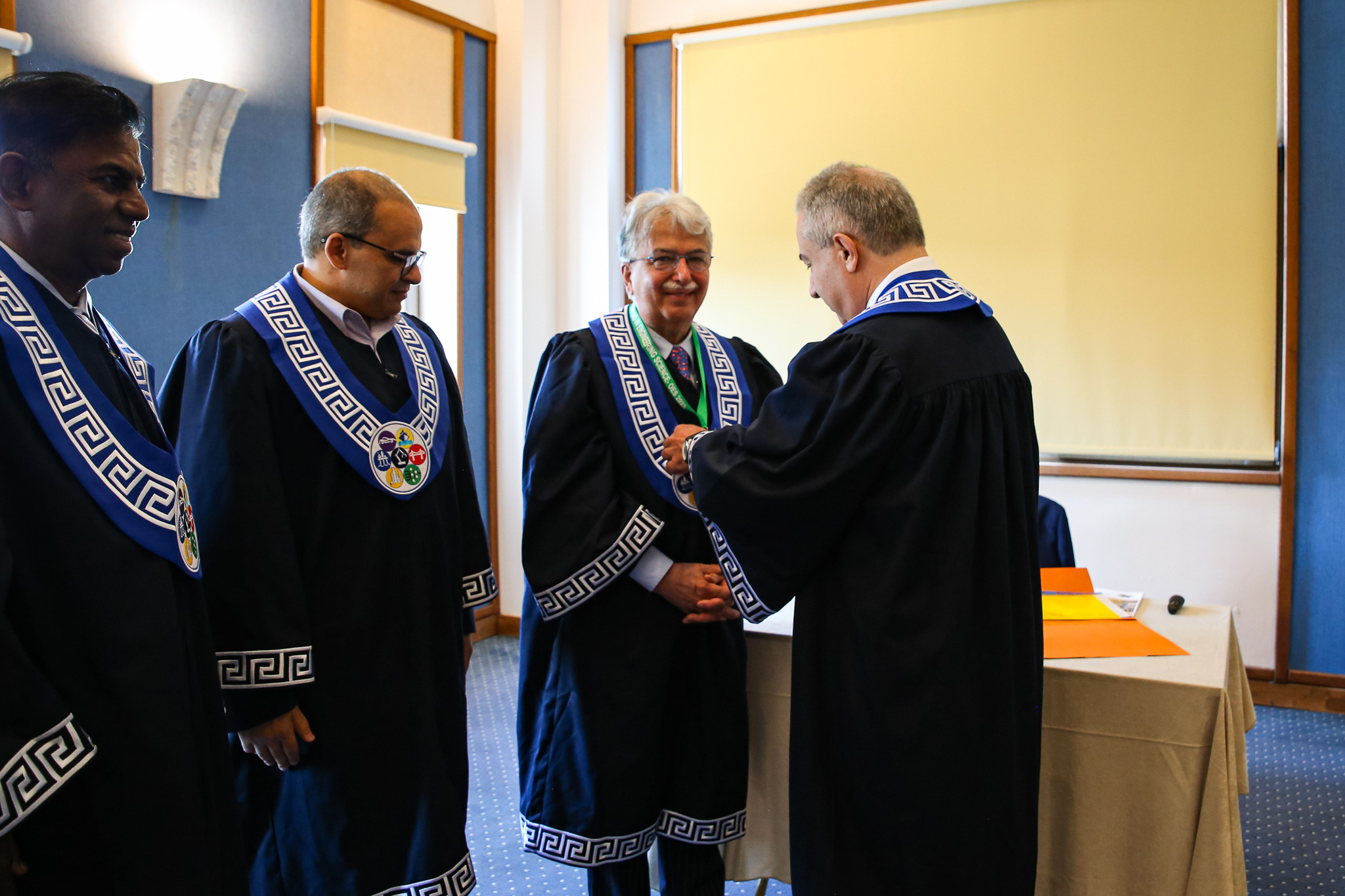
"He has authored over 650 research and scientific publications, and he has been listed among the world's most influential scientific minds in computer science and engineering since 2014," Professor Dimitrios Pavlou from University of Stavanger said in his introduction to the award ceremony, and continued:
"Few contemporary researchers in the world have made such profound impacts on so many different fields."
The last years, Professor Adeli has focused his work on automated diagnosis of neurological and psychiatric disorders.
"I work with the brain's signals. My vision is to change neurology," Adeli said, grateful for the award.
"It is fitting to start the Olympiad in this great country. Science brings people together, and I hope this conference will inspire more collaboration between the countries participating," Adeli said.
"Engineering is the key"
The Dean of Faculty of Science and Technology, Øystein Lund Bø, opened the conference.
"This gathering is a reminder about the incredible impact that engineering has on the development important for our daily lives; from the bridges and oceans we cross to the buildings we live and work in. Engineering is the key to build essential infrastructures and machines of all kinds and to support us with energy and food," Lund Bø said in his opening speech.
"I am sure that the topics addressed here will contribute to solving key challenges such as the climate changes, resource depletion or the energy supply crisis. The solutions can only be developed through the application of the engineering principles, the Dean said.
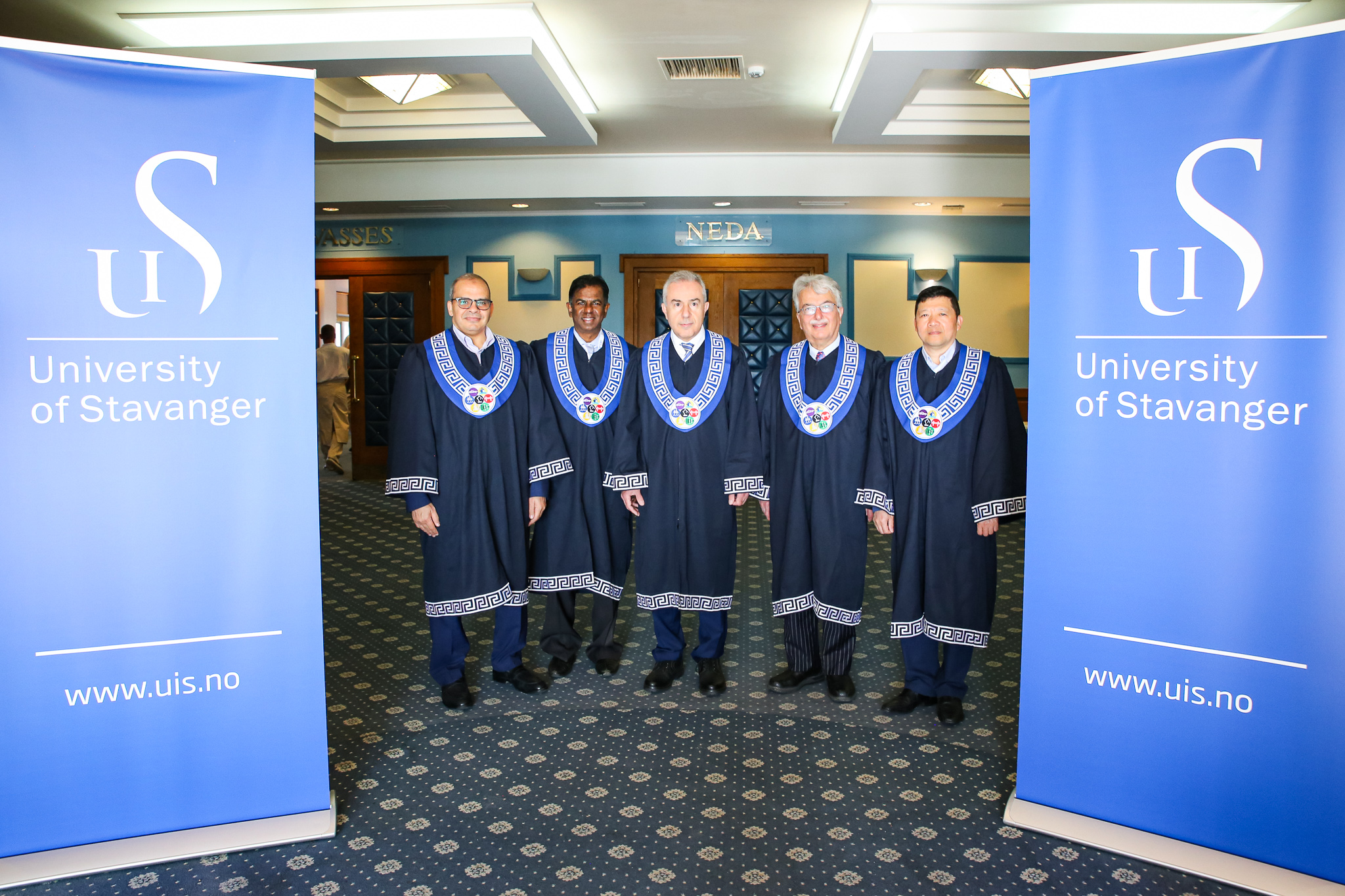
Lund Bø followed the two first days of the conference and listened to presentations in a wide range of topics. The diversity of the presentations was highlighted by several contestants.
"I have learned more from this conference than any other, because of the rich programme. The quality of the presentations, the organization of the event, and the venue in beautiful Greece – all of this contributed to make this a conference to remember, Professor Priyan Mendis from University of Melbourne said when summing up the event.
University of Stavanger (UiS) was the organizer of the first Olympiad in Engineering Science, with ECIU as co-organizer.
Text and photos: Kjersti Riiber